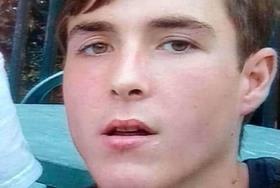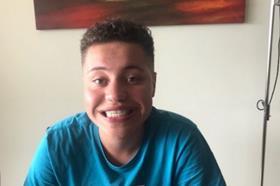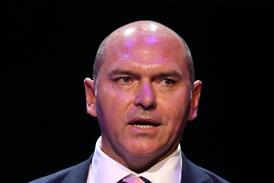HSJ’s fortnightly briefing covering safety, quality, performance and finances in the mental health sector — contact me in confidence.
When harrowing reports of abuse and poor care at NHS mental health facilities surfaced last year, one of the key asks from NHS England was for trusts to prioritise listening to patients, their families, and “taking effective action when they tell us something isn’t right”.
NHSE is not alone in highlighting the issue. Office for National Statistics analysis of coroners’ prevention of future deaths reports on suicides – covering January 2021 to October 2022 – found, of the 55 which cited problems with communication, 12 added patients’ families were not engaged.
Meanwhile, a recent report by Inquest showed little progress in involving patients’ families since it carried out similar research in 2016. Poor communication, inadequate sharing of information, and investigations which failed to properly include loved ones were among repeated failures identified.
The charity’s chief executive officer Deborah Coles said she was “both saddened and angered” to hear families discuss many of the same issues they heard about five years ago.
She added: “The litany of issues left unchanged further adds to the distress families feel and risks making them disengage from investigatory processes entirely or being retraumatised by the process… The time for fundamental change and a complete overhaul of the way these deaths are investigated is long overdue.”
‘Threatened and ignored’
Themes discussed in Inquest’s report tally with those who shared their experiences with Mental Health Matters.
Georgette Civil’s son Freddy died in April 2021 after absconding from Newton Lodge Fieldhead Hospital in Wakefield, run by South West Yorkshire Partnership Foundation Trust. Ms Civil told MHM how she repeatedly raised concerns about her son’s wellbeing but felt ignored by the trust, despite her forewarning he might die in its care.

“Had this trust been open when Freddy was alive and invited me in like I wanted to… we could have worked out a safe plan to have kept him alive,” she said.
It was only just before her son’s inquest that she received his paperwork and personal diaries. She discovered he had reported being called a paedophile by staff, developed alopecia and full-body eczema, gained a significant amount of weight, and was not getting enough physical activity.
She shared this information with the coroner at his inquest, who concluded: “The evidence presented to the jury leads us to conclude that Freddy was frustrated by the lack of progress with treatment for substance misuse, his lack of trust for staff at Newton Lodge, the restrictions on his activities… and his weight.”
Ms Civil also raised concerns about the PFD process – the coroner considered issuing one, but felt the trust’s action plan to improve its substance misuse service was sufficient. She fears the multitude of issues her son faced as highlighted by the coroner could be systemic and may lead to further deaths. She is seeking legal action over Freddy’s death, which is ongoing.
Julia Caro’s son Christopher Nota died in 2020 following a fall from a height. He had been under the care of Essex Partnership University FT – currently subject to an inquiry probing 2,000 deaths over 20 years – and a coroner found multiple significant failings contributed to his death.
Ms Caro told MHM she felt “threatened and targeted”, with key information and access to meetings denied to her, while Mr Nota’s inquest was delayed by six months after the coroner found the trust had failed to share important information . Ms Caro also feels that had bereaved parents – such as Melanie Leahy, whose son Matthew died in 2012 – been listened to, her son may still be alive.
“Lives are lost in exactly the same system month in, and month out,” she told MHM.

“I have to live with the certainty that Melanie Leahy stood up over a decade ago, and never stopped trying to save lives like that of my child. Had doors not been slammed in her face, my child would be with me still.”
In Inquest’s report, families called for trusts’ investigations to be independent and thorough, with families able to offer evidence and expertise to investigators without this being treated as hostile or troublesome. They also called for interactions with trust staff – especially following a death or serious incident – to be empathetic, humane, respectful and informative.
Wider recommendations included enforcement and oversight of PFDs and coronial findings, a proper appeals process to challenge coroners’ conclusions, and greater oversight from the Care Quality Commission on issues arising from investigations.
Carol Harris, SWYP’s COO, said: “Our thoughts are with Mr Civil’s family and friends. At our trust, the care and safety of the people who access our services are a priority for us. In line with our trust values this includes treating people with compassion and respect and putting them at the centre of the care they receive.
”Following Mr Civil’s death we carried out a thorough investigation and developed a detailed action plan to enhance our service delivery.”
An EPUT spokesperson added: “Our thoughts remain with Chris’ family, friends and loved ones following their loss.
“We recognise the vital role families and carers play in care and recovery and have made widespread improvements across our services since this tragic incident in 2020.
“A new Patient, Carer and Family Collaborative, a patient-centred EPUT forum and the expansion of our service user networks are improving communication with families and ensuring they are fully involved in decisions and discussions about patient care.”
Source
Inquest report, ONS, interviews
Source Date
April-May 2023



























No comments yet